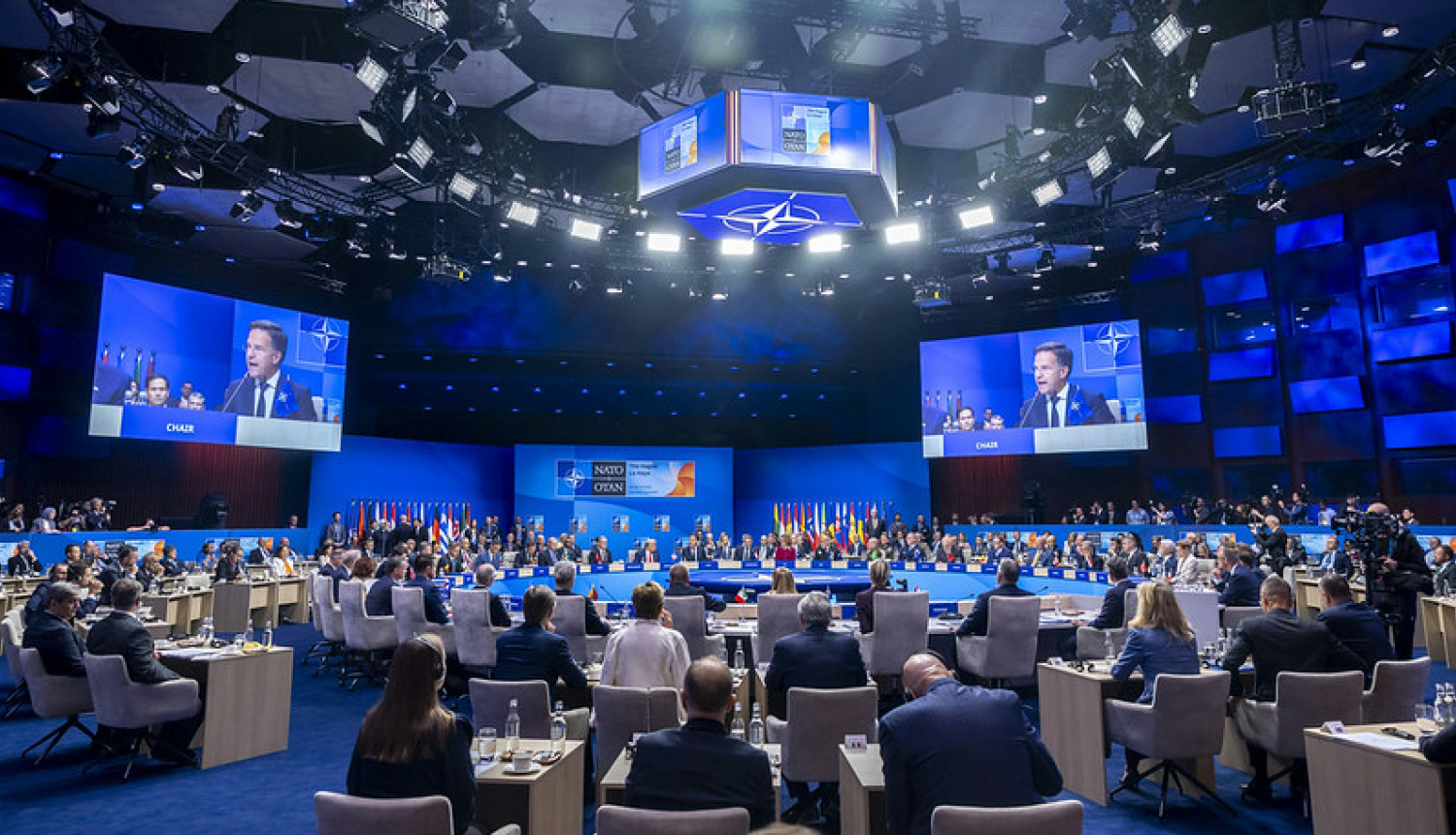On 24 and 25 June, Minister of Foreign Affairs Baiba Braže participated in the NATO Summit in The Hague, the Netherlands, as part of the Latvian delegation led by President Edgars Rinkēvičs.
“At the NATO Summit in The Hague, we achieved a historic agreement – to significantly increase defence investment, reaching 5% of national GDP by 2035. We are pleased with the outcome of the Hague Summit – this was Latvia’s main priority. It demonstrates the unity, solidarity, and shared understanding of the geopolitical reality among Allies, as well as the need to build a stronger, more modern, more capable, and fairer Alliance, in order to deter aggression and defend every inch of NATO territory. Latvia is already investing nearly 4% of its GDP in defence this year, and will reach 5% by 2026,” said Foreign Minister Baiba Braže.
The summit reaffirmed strong support for Article 5 of the NATO Treaty and continued support for Ukraine. The Allies also confirmed their common understanding of Russia, which continues its cooperation with North Korea, Iran, China, and Belarus. Russia remains a direct, long-term threat to the security of the entire Euro-Atlantic area.
National leaders expressed their determination to accelerate the development of the transatlantic defence industry to ensure that the Alliance’s armed forces receive military capabilities in the volume, quality, and timeframe necessary to meet the current level of threat, while also enabling Allies to provide essential military support to Ukraine.
Baiba Braže noted that the historic decision is an investment in the security of all Alliance member states and one billion people – including Latvia.
“We all want to live in peace, security and prosperity. But in today’s geopolitical reality, we must understand that without security, there is no prosperity. Awareness of this is growing across the Alliance. Russia’s prolonged aggression against Ukraine and increasingly intense unconventional attacks on NATO members clearly show that the threat is real. Investment in security is not only about costs – it also has significant economic potential. Developing the defence industry creates new jobs, strengthens industrial ecosystems, and fosters innovation.”
Braže highlighted that Latvia has actively developed its defence industry in recent years, and closer cooperation is being promoted between defence companies and local manufacturers – particularly in fields such as UAV technologies, artificial intelligence, and testing infrastructure.
The agreement reached at the summit foresees allocating at least 3.5% of GDP to direct defence expenditure to meet NATO military capability targets. Achieving these capability targets is crucial for implementing regional defence plans – something of critical importance for Latvia as a country on NATO’s Eastern flank. Up to 1.5% of GDP is to be directed towards strengthening defence capabilities and resilience.
At the Embassy of Latvia to the Netherlands, the Order of Viesturs was awarded for outstanding service to the Latvian state, with NATO Supreme Allied Commander Europe General Christopher G. Cavoli and former Chair of the NATO Military Committee Admiral Rob Bauer being appointed Grand Cross Commanders.
The Minister also held meetings with Allied officials, participated in public discussions, and gave interviews to both international and Latvian media:
- On 24 June, Baiba Braže took part in the NATO-Ukraine Council
- She met with Canada’s Foreign Minister Anita Anand, U.S. Secretary of State Marco Rubio, and NATO Deputy Secretary General Radmila Šekerinska
- Participated in the NATO Public Forum session “From Legacy to Leadership: Bridging Generations in International Security” (time stamp from 01:57:57)
- Gave interviews to Latvian and international media outlets including CNN International, Bloomberg, SKY News, Times Radio, NewsHour, and others
- The Hague Summit Declaration
- 24.-25.06.2025. Ārlietu ministres Baibas Bražes darba vizīte Nīderlandes Karalistē; NATO samits Hāgā | Flickr




